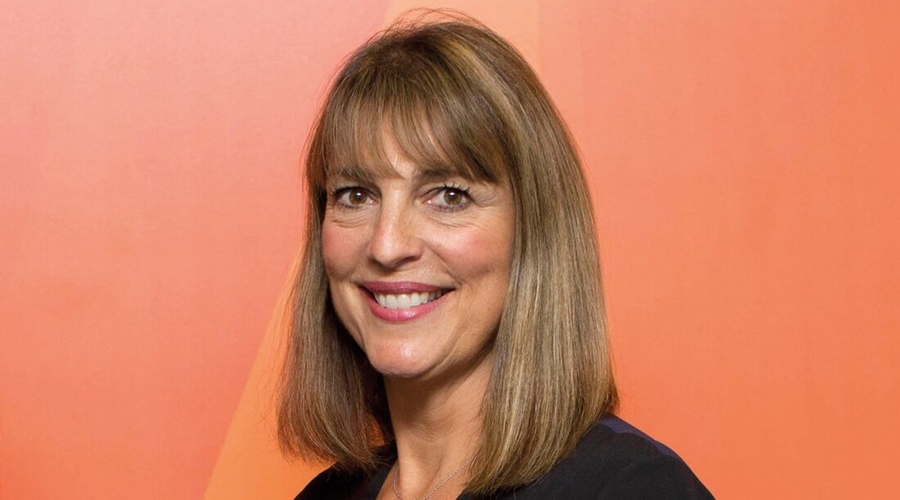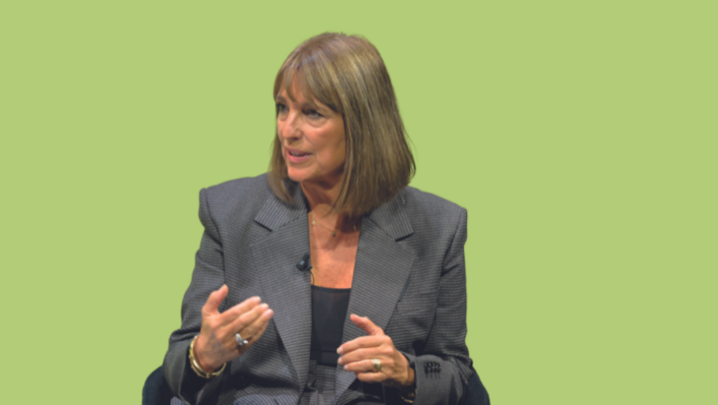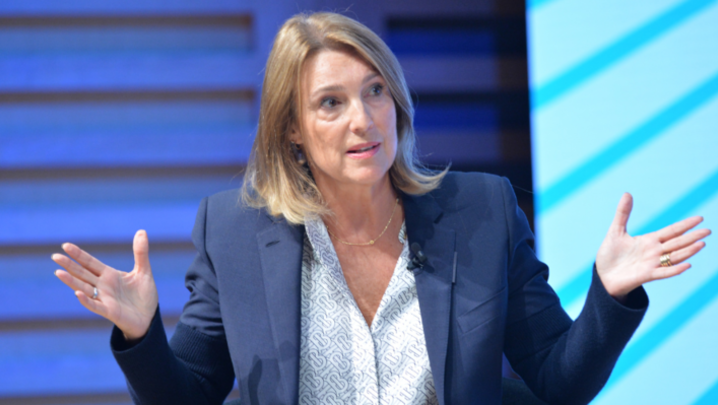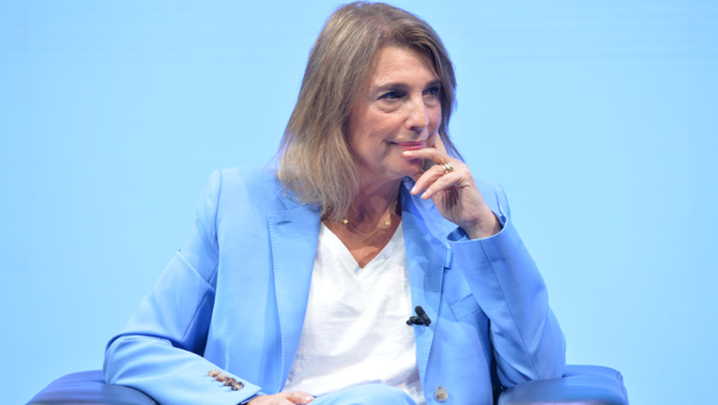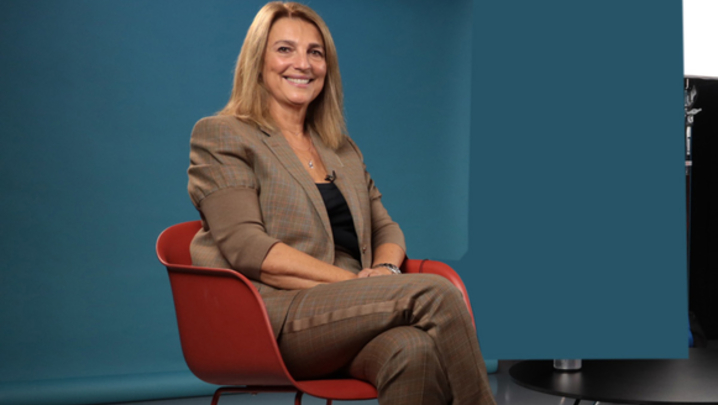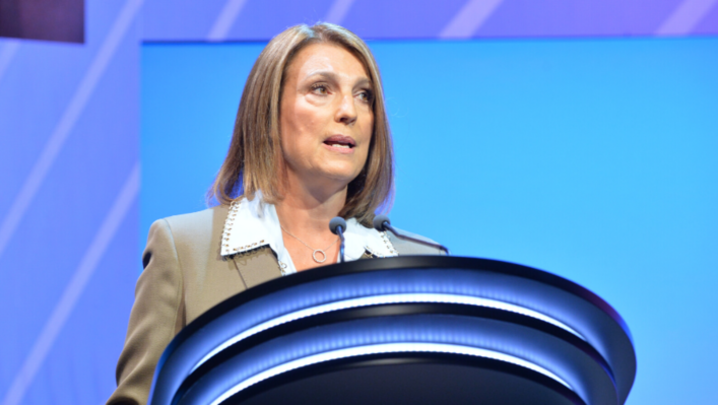Steve Clarke profiles ITV's new CEO, Carolyn McCall, and examines some of the challenges facing her.
For many people working in TV, the only opportunity they have had to observe Carolyn McCall has been at The Guardian’s annual post-MacTaggart lecture dinners, held at the Edinburgh TV festival.
As the newspaper’s Chief Executive, she co-hosted the events alongside then-editor, Alan Rusbridger. This lack of visibility in TV circles is about to change as she prepares to take over as the first female head of ITV.
“There have been some quite senior women running distribution companies in British TV, but I think I’m right in saying we’ve never before had anyone quite like Carolyn working in our business at such a senior level,” says one veteran TV executive.
In common with her predecessor at ITV, Adam Crozier, she is completely new to TV. She is, unusually for a new TV chief, highly experienced at running a FTSE 100 company. Equally important, she is deeply knowledgeable about the advertising market and its complexities.
It is this latter skill that will be tested in the years ahead. Despite Crozier’s successful rebalancing of ITV’s business to the point where it operates as a global producer of scale, securing advertising revenue remains pivotal to ITV’s success.
While advertising today accounts for 47% of ITV’s turnover, it still delivers 75% of the firm’s profits
Dame Carolyn (she was made a dame in 2016 for services to the aviation industry) joins the broadcaster at a time when ad-funded TV businesses across the world are under pressure from the likes of Facebook and Google.
"She turned it into one of Europe's best-performing airlines, almost quadrupling its share price"
Many media buyers are now biased in favour of digital, rather than traditional advertising media. So, one of the new CEO’s first jobs will be to persuade these people of ITV’s effectiveness as a marketing tool against a backdrop of Brexit jitters.
“Carolyn understands conventional and digital advertising and the strengths and weaknesses of both,” points out a media insider. Exactly how much of ITV’s advertising challenges are down to structural or cyclical factors is a moot point. But, following a difficult 2017, during which British broadcasters have battled an advertising downturn, ITV’s ad revenues appear to have ended strongly.
McCall’s seven-year tenure as CEO of EasyJet was crucial to her landing the ITV job. After joining the company in 2010, she turned it into one of Europe’s best-performing airlines, almost quadrupling its share price.
That she did it without ever having worked in aviation before was a point not lost on ITV.
Michael O’Leary, head of rival Ryanair, once famously labelled her a “media luvvie” but he ended up eating his words. “I clearly underestimated her and I was proved wrong,” he told the FT. “She forced us to up our game on customer service. EasyJet and the industry are better as a result of her tenure.”
It is sometimes overlooked that EasyJet and ITV are both regulated, international companies – something that clearly weighed in her favour when the broadcaster was searching for the best person to succeed Crozier.
At The Guardian, where she worked from 1986 to 2010, she successfully helped the newspaper move to the digital space.
“Carolyn enabled The Guardian to become a major online brand,” says someone who has taken a keen interest in the upward trajectory of her career over the years. “She understands what it means to be digitally challenged and to make the transition to the digital era.”
Others point out that The Guardian’s web presence, however brilliant, has not been a cash cow. “What people forget when they talk about Carolyn is that, while The Guardian’s free online model has brought it millions of new readers across the world, it has never been a financial success,” observes media journalist Torin Douglas.
He accompanied her and other Guardian executives on a wine-tasting trip to the Loire for its big advertisers back in 1986. At the time, the newspaper wanted to persuade the marketing community to remain with the Guardian, rather than move their business to the newly launched Independent.
McCall, who’d spent a brief spell as a teacher at Holland Park School, was then working as a planner in the advertising team at The Guardian. “She was brilliant at her job, very personable, and built an excellent young team,” Douglas recalls.
Brought up as an only child in India by British parents, ITV’s new CEO was educated there and in Singapore, followed by a spell in her teens at a Catholic boarding school in the UK.
At the University of Kent she read history and politics, subsequently taking a masters in politics at the University of London.
At The Guardian’s sales department she was guided by her mentor, Caroline Marland, Fleet Street’s first female advertising director. Together, the two women succeeded in turning the paper into a formidable advertising medium, thanks in large part to the hundreds of public-sector and education job ads aggregated in special, weekly sections and a hefty media section (previously unknown in Fleet Street).
"She loves building teams and leading from the front"
In 2006, she succeeded Bob Phillis as CEO of the Guardian Media Group, having been appointed Managing Director of Guardian Newspapers six years earlier.
Married with three children, Dame Carolyn, 56, is famous for being hyper-organised and for her relentless dedication to the job at hand.
She is also known for her inclusive approach to running companies. “She loves building teams and leading from the front,” notes an admirer. “She has a really open, transparent style of management.”
In 2016, she was approached to run Marks & Spencer. It is understood that one of the reasons she turned the job down was because she was interested in working again in media, rather than in retail.
At EasyJet, she maintained her contacts in advertising and is perhaps better connected with the world of advertising than anyone who has ever run ITV.
So, how will Carolyn McCall out- manoeuvre the online tech giants, which are moving into the business of commissioning long-form content for platforms such as YouTube Red?
Expect to see a greater emphasis on individually targeted advertising and greater use of data – and more collaboration between ITV, Channel 4 and Sky as they find common cause against the Silicon Valley behemoths.
“We need to keep the value of our mass audience, which is a real asset, but we need to ensure that TV advertising is data-rich and targeted,” says one ITV insider.
That she comes to ITV unburdened by any baggage of having worked in television before could prove be a big advantage. One experienced TV head suggests this may result in a close working relationship with Channel 4’s new CEO, Alex Mahon. “That would be a very formidable alliance,” he forecasts.
Few would disagree.

